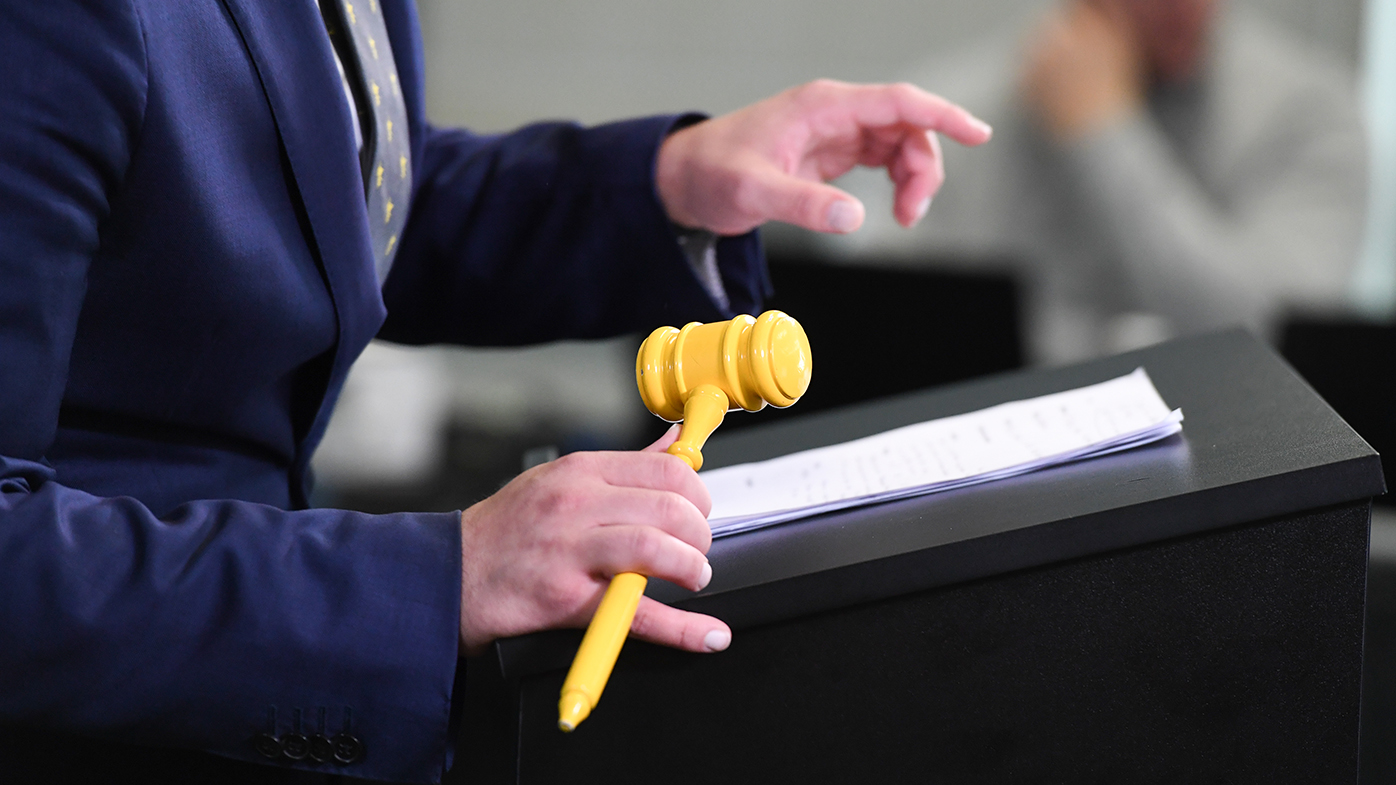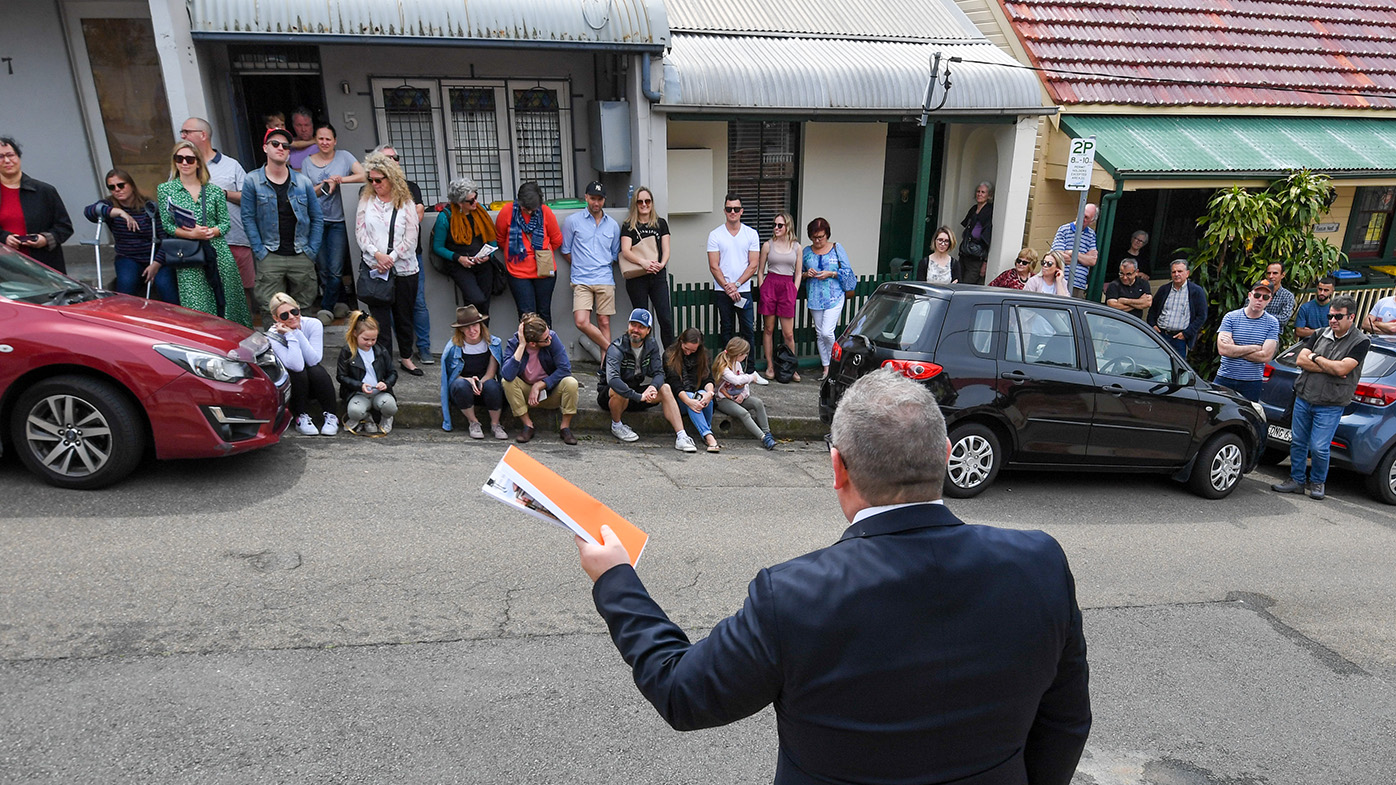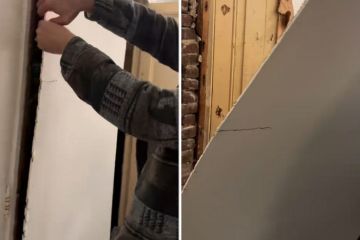Auctioneer reveals the biggest mistakes bidders make at auctions

Bidding at an auction is an art.
And like anything a person may attempt once, perhaps twice, in their life, there are a rash of unknowns and a margin for error.
Auctions are scary, Auctioneer of the Year Andy Reid says. They are supposed to be.
“Let’s not beat around the bush, you are not playing with small change. It’s a significant life event that is decided in a space of 20 to 30 minutes,” he says. “Of course it is going to be scary, but a lot of the anxiety buyers feel is completely unnecessary.
“A lot of the anxiety can be eradicated, just by getting yourself together, getting organised and putting in the effort to a create a greater awareness of what is going on.”
Mr Reid has conducted thousands of auctions over ten years as the founder of Sold By Group, which also trains real estate agents to become crack auctioneers.
Mr Reid has been awarded the REB Auctioneer of the Year and the REIV Senior Auctioneer of the Year.
This is his handbook for buyers to avoid making costly bidding blunders under the hammer.

Know the auctioneer
“Put time into watching them” Mr Reid says. “Humans are very uncertain in their behaviour when they are under pressure.”
Ask the listing agent who the auctioneer will be and study them online – lots of agencies load auction videos onto Facebook and YouTube.
“Watch a couple of auctions a day when you are in that mindset, and if you find a property you want to buy and you are thinking about giving it a crack, find videos of that specific auctioneer,” Mr Reid says.
“We are humans as well, believe it or not. They all have set patterns, spiels and lines they say. Visualise the first ten to thirty seconds, and watch how the auctioneer rolls in the first ten to thirty seconds of their auctions, because that is when your tension is going to be at its peak.”
Familiarity with the auctioneer and situation about to unfold breeds confidence. “You won’t feel as nervous,” Mr Reid says.
Also watch whether the agents move through the crowd, speaking to bidders as the auction progresses, so you are not caught off guard if this happens. Mr Reid says don’t allow them to throw you off your game.

Have courage
Often, the first person to open the bidding is the one who wins the keys, because they are well researched.
Work with the auctioneer, Mr Reid says, and try to ignore the other theatrics around you.
“I really don’t understand why buyers allow other people to take control of their destiny. I appreciate the tension – it is like kids at a school disco, no one wants to put their feet on the dancefloor first.
“But it does tend to be that person (who bids first) who is the life and soul of the auction. They have a goal and they are focused on that. I think the reason why so many people stand on the sidelines for way too long is because they are too busy focused on everyone else.”
If you are bidding and feel like throwing in odd numbers, just like businessman Danny Wallis, a prolific buyer of houses on The Block (who is known for bidding in peculiar increments), go for it. Keep all parties on their toes. Mr Reid says he loves Mr Wallis’ approach.
Be the one to negotiate
If the auction doesn’t reach the reserve price, the bidder with the highest bid (when the property is “passed in”) scores the right to exclusively negotiate. That bidder is the one – the only one – invited inside to start haggling.
All other bidders must wait outside and hope the negotiation breaks down.
“Buyers have got to understand that other buyers that are still in the game are more serious than ever. Because despite all of the uncertainty in the world, with the government and the economy, they are still out there trying to buy,” Mr Reid says.

“So that right to negotiate is worth its weight in gold, for a couple of reasons; it stops any of those other bidders from having a yarn with the vendors, and the vendors, unless they have been living under a rock, are more aware of market conditions than they have ever been.
“Vendors are really keen. And buyers are really keen. So if you win the right to negotiate, you negate the concern of getting counter-offered by another party. Take advantage of that head start, and have the direct and undivided attention of a vendor who is at the peak state of motivation to sell their property because they are going through the anxiety of an auction.
“They are more likely, in the majority of cases, to be more forthcoming when it comes to the negotiation.
“It is the single best scenario for a buyer to be in.”
Auctioneer Andy Reid’s bidder checklist
- Do not let other bidders control your destiny
- Bid with confidence
- Do not allow agents to hassle you during the auction
- Plan – know your goal and research the auctioneer before the day
- Watch lots of auctions on Facebook and YouTube beforehand
- Understand the right to negotiate and be in that pole position
We recommend
We thought you might like
States
Capital Cities
Capital Cities - Rentals
Popular Areas
Allhomes
More
- © 2025, CoStar Group Inc.










